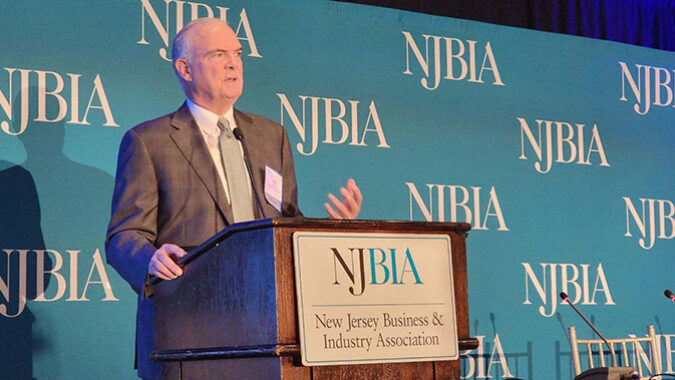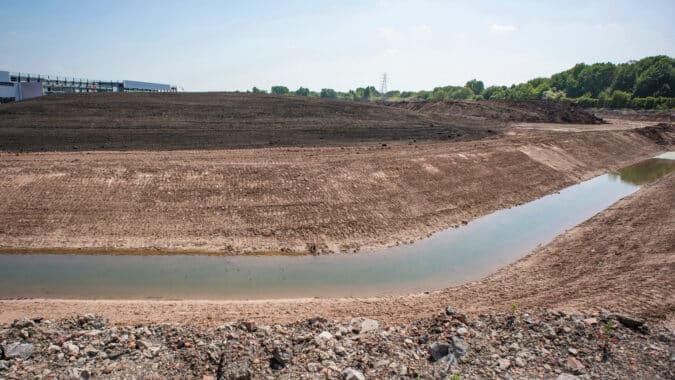U.S. national security depends on its energy security – and the successful transition from fossil fuels to clean renewable energy sources must not lose sight of this reality, an energy expert told hundreds of attendees at NJBIA’s recent Energy Policy Conference.
Bob Martin, a former state Department of Environmental Protection commissioner and the current managing director of the business and public policy consulting firm Christie 55 Solutions, discussed the key challenges that must be overcome in the U.S. shift to clean energy.
“Energy security is going to be critical as we manage through this transition,” Martin said.
The war in Ukraine and the current fighting in the Middle East underscore the fragility of the global energy market and the inherent risks of energy supplies controlled by other nations, he said.
“The reality is that if we’re going to talk about renewable energy, we’re going to need multiple different types of critical minerals that we don’t control here in the U.S.,” Martin said.
He noted, for example, that 80% of the world’s solar panels are built, produced, and shipped from China. Russia and China together control 50% of the supply of rare earth minerals needed to make crucial renewable energy components such as wind turbines, batteries, and solar panels.
This means the U.S. dependent is currently dependent on other countries for “when we get materials, how we get materials or if we get them at all,” and that could stifle some of the growth in the renewable energy industry in this nation going forward, he said. The U.S. renewable energy chain cannot be dependent on other countries, especially ones that are not U.S. allies, he said.
“Yes, I’m suggesting we should be mining more,” Martin said. “If we’re going to continue on the path that we need those critical minerals, we going to need to mine those here in the U.S. and we need to drive that through our public policy.”
Martin noted the transition to clean energy, which is now the source of just 13% of the energy consumed in the United States, is going to take time. Fossil fuels, which are now the source of 79% of U.S. energy consumption, will be necessary for reliable and affordable energy in the meantime. Therefore, investments are necessary in existing delivery and transmission infrastructure.
“We can’t ignore the energy needs for the next several decades,” Martin said. “We need to recognize that both the electric grid and pipelines are critical infrastructure, and they need to be treated that way and they needed to be invested in,” Martin said.
“The biggest driver of a modernized grid is going to be renewables,” Martin said. “We need a grid that’s upgraded for that … whether it’s solar, whether its onshore wind or offshore wind, we need grid upgrades to make those work.”
There also needs to be transparency about the costs involved, Martin said.
“We need to have realistic projections of what those costs are to the U.S. economy and to consumers,” Martin said. “We can’t ignore that discussion.”
To view a video of Martin’s entire presentation at the 3rd Annual NJBIA Energy Policy Conference on Oct. 10, go here.

